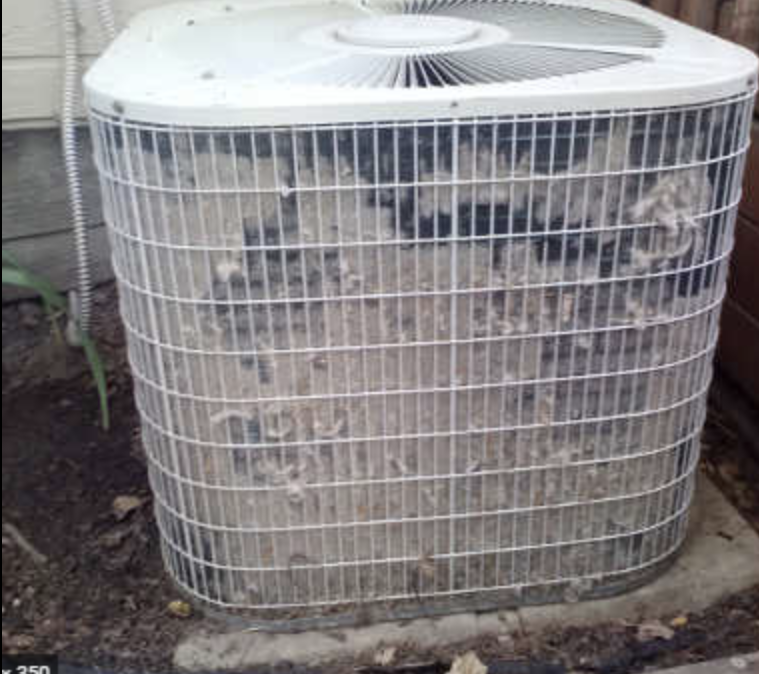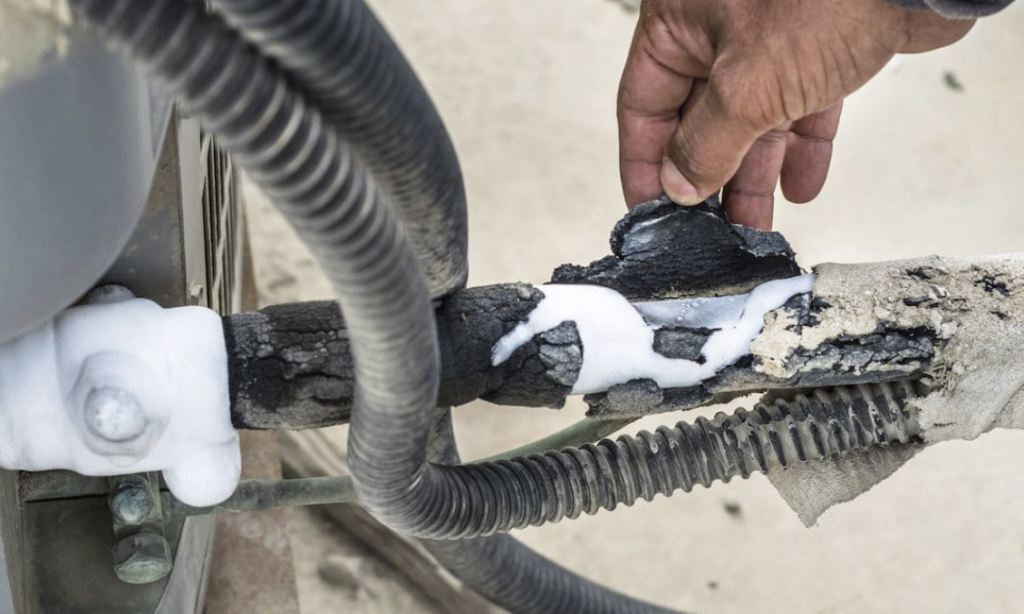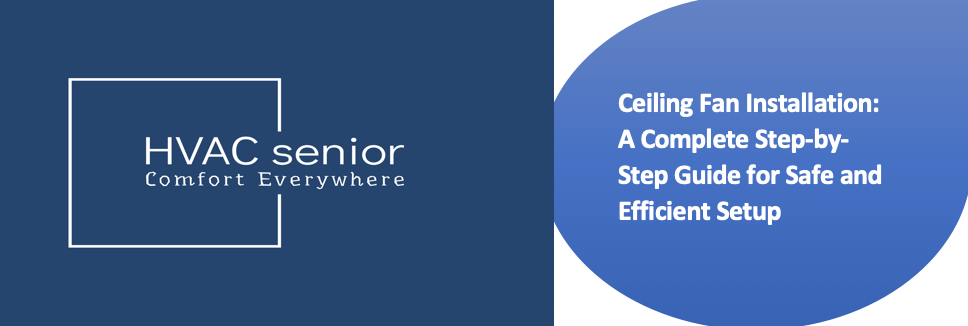AC unit blowing hot air outside? Find out why and how to fix it.
Don’t worry when you AC unit blowing hot air outside .As the summer heat builds, the idea of a functioning air conditioner (AC) unit—which offers a refuge of cool reprieve within our homes and workplaces—becomes increasingly essential.
In spite of the rising temperatures, you can wake up one morning covered in perspiration and in a bed that provides no relief from the heat.
At a glance: AC unit blowing hot air outside due to Dirty Filter,Clogged/dirty outside AC unit,Thermostat issues,Refrigerant leak or Frozen evaporator coils.
One of the most common symptoms of a failing cooling system is the regrettable occurrence of the air conditioner venting hot air both inside and outside of your home.
Related post>>>>>Air Conditioner Keeps Turning On & Off.
Your air conditioner may lose its ability to perform its main function of keeping you cool during the sweltering summer months due to a variety of variables working together.
Knowing the typical causes of your AC unit spewing hot air within and outdoors is essential if you’re a responsible homeowner.
With this knowledge, you can start a troubleshooting process before calling in an HVAC specialist, whose assistance is frequently expensive.
So let’s explore the complexities of diagnosing the problem and finding a solution when your air conditioner decides to spew hot air both inside your home and outside in the open air.
Reasons your AC unit blowing hot air outside.
During the summer, a common issue that most households encounter is their air conditioner spewing heated air.
It is not a pleasant experience because the intense sunlight and elevated air humidity cause you to perspire more and lose focus.
Then why does your air conditioner blast heated air in the summer? Why? Read on.
1.Dirty Filter.
A dirty filter is one of the most cunning culprits that can undermine the effectiveness of your AC unit both inside and outside.
This seemingly insignificant problem has the potential to disturb the smooth circulation of cool air and ultimately result in the frustrating situation where the air conditioner blows hot air outside.
A clogged filter acts as a silent adversary in your cooling system. Its fundamental fault is its capacity to restrict airflow, resulting in a restriction that overworks your air conditioning system.
Your cooling system progressively suffers damage from this constant strain, changing from a trustworthy protector of coolness to an unintentional collaborator in the spread of warm air.
In essence, a blocked filter acts as a barrier to the cooling air gusts that your air conditioner is intended to produce. As long as this barrier exists, your cooling system’s effectiveness will decline, forcing it to exhaust hot air outside while you swelter inside.
A clear, unobstructed filter emerges as a key ally in the fight against the oppressive summer heat, helping to keep your air conditioner steadfast in its goal to keep hot air at bay both within your home and outside.
Also read>>>>Air conditioner makes whooshing noise.
2.Clogged/dirty outside AC unit.

In fact, the perfect coordination of the indoor and outdoor AC units is essential to maintaining coolness during the sweltering summer months.
But when the outdoor unit gives in to the buildup of dirt and debris, it transforms into the harbinger of misery, preventing the heat from leaving your house or place of business and inevitably resulting in the annoying situation of the AC unit blowing hot air outdoors.
Imagine the outside AC unit as the brave sentinel guarding against the stifling heat. Its goal is to draw warmth from your indoor sanctuary and release it into the outside world.
However, when this brave defender is captured by the cunning forces of dirt and debris, its ability to carry out this mission is compromised.
As these bothersome particles build up, a subtle barrier forms that prevents the outdoor unit from dispersing heat effectively.
The result is a constant effort to heat your home, which makes the interior climate far from the cool haven you long for during the summer heatwaves.
This situation is felt both inside and outside, where the compromised and overworked AC unit blows hot air, making the pain even worse.
In essence, the outdoor unit plays a crucial part in the cooling symphony. When it is compromised by dirt and debris, the harmony is broken, which results in the regrettable situation where the AC blows hot air both inside and outside, leaving you sweltering in the summer’s oppressive embrace.
As a result, keeping the outdoor unit clean is crucial to maintaining the sanctity of your interior cool retreat.
Also read>>>>Window Air Conditioner Maintenance Checklist.
3.Thermostat issues.
The thermostat setting is a frequently disregarded maestro in the complex dance of preserving indoor comfort during the oppressive summer heat.
This inconspicuous but essential part can occasionally cause confusion since it may unintentionally direct your air conditioner to blow warm air outdoors rather than the desired coldness. This creates a perplexing situation.
The thermostat acts as the conductor of your home’s internal atmosphere, balancing the temperatures precisely to satisfy your needs.
However, during regular changes or seasonal transitions, it’s not unusual for this maestro to misinterpret your intentions and order warm air when what you really want is a break from the summer’s harsh heat.
The effects of this misalignment between your preferences and the thermostat’s commands may be extensive. You are confused and uncomfortable as your AC unit obediently responds to the thermostat’s command to send warm air into your living area.
Confusion is increased by the outdoor unit’s simultaneous continuation of its exhausting hot air nonstop job.
In essence, there is no disputing the thermostat’s influence over the temperature of the air your AC unit produces.
The confusing occurrence of the AC unit blowing hot air both inside and outside occurs when it misinterprets your request for cooling and orders the machine to disseminate warmth instead.
To restore the balance of indoor comfort during the hot summer months, it is crucial to make sure the thermostat is calibrated to your cooling demands.
Also read>>>>Air conditioner Keeps tripping Breaker.
4.Refrigerant leak.

As the unsung hero of the complex system that is your air conditioner, refrigerant plays a crucial part in providing you with the valued gift of cold, refreshing air by absorbing heat.
But when the integrity of this essential chemical is jeopardized due to leaks or inadequate levels, it heralds the start of a terrible situation in which your AC unit, like a stumbling performance, can no longer provide the cool reprieve you need.
As a result, your AC unit will start to blow hot air both inside and outside of your living space, which is a frustrating situation.
The elemental force that absorbs the oppressive heat within your home and disperses it outside of your living space is refrigerant, which flows through the veins of your cooling system.
Its absence or reduction ushers in a difficult trial for your air conditioner, leaving it unable to carry out its cooling task.
The efficiency of your system is slowly diminished by refrigerant leaks. Your AC unit’s ability to combat the sweltering summer temperatures decreases as it seeps away.
As a result, your home receives only a small amount of cool air, far from the oasis of coolness you so urgently desire. The issue is exacerbated by the outdoor unit’s simultaneous, fruitless attempts to discharge heat.
In essence, the refrigerant plays a crucial role in the cooling process, and any leaks or low levels signal the beginning of the problem where the AC unit blows hot air both inside and outside.
In order to protect the sacredness of interior comfort throughout the sweltering summer months, maintaining the purity of your refrigerant supply is of the utmost significance.
5.Frozen evaporator coils.

The evaporator coil, like the refrigerant, assumes the position of a crucial performer in the complex choreography of cooling the air that pervades your home. It performs a vital function, turning warm air into the refreshing breeze you long for during the stifling summer heat.
However, when this crucial component is gripped by cold, it transforms into the forerunner of discomfort, causing the baffling situation where the AC blows hot air both inside and outdoors.
The key component in the cooling process, the evaporator coil is responsible for removing heat from the indoor air. However, it undergoes a striking functional reversal when it succumbs to freezing.
It chills the coil rather than cooling the air, which prevents it from functioning in its intended capacity.
Your air conditioner obediently keeps blowing air as this freezing phenomena spreads, but it’s no longer the cool, pleasant air you want.
The air is instead turned into an uncomfortable burst of warmth by the evaporator coil’s chilly grip, leaving you uncomfortable. The mystery is made more perplexing by the unit’s continued hot air exhaustion outside.
In essence, it is evident that the evaporator coil plays a crucial role in the cooling process. But when it freezes, it creates the paradoxical situation where the air conditioner blows hot air both inside and outside.
Therefore, protecting the evaporator coil from freezing is crucial to maintaining the balance of indoor comfort throughout the humid summer.
Troubleshooting tips when AC unit blowing hot air outside.
Most of the time, it is both inconvenient and uncomfortable when your air conditioner starts to pump warm air.
Troubleshooting your cooling system is useful because there is always a cause for the malfunction. Here are some useful ideas for troubleshooting your broken AC.
1.Check the Thermostat.
We come across two key settings in the versatile world of contemporary thermostats: the AUTO function and the ON setting for the fan.
This dynamic pair has the ability to control whether your air conditioner pushes hot air outdoors or kindly invites in cool respite inside your home.
Your thermostat acts as a watchful sentinel when it is set on AUTO, ready to activate the fan at the first sign of a rise in room temperature.
This guarantees a timely supply of cool air and successfully halts the sneaky advance of hot air both inside and outside.
In contrast, when the fan is turned ON, it transforms into a constant source of coolness, circulating cool air continually until it is purposefully turned OFF.
The thermostat settings are therefore the key to the problem. Examining your thermostat is essential to prevent the perplexing situation where the AC blows hot air both inside and outside. Make that the COOL function is properly selected and that it is faithfully set to the AUTO setting.
By avoiding the unwelcome entry of hot air into your sanctuary, you take a major step towards re-establishing the balance of interior comfort throughout the blazing summer.
Also read>>>>Furnace leaking water when ac is on.
2.Clean/Change your Air filters.
You have two options when dealing with dirty air filters: start the cleaning process or choose to replace them entirely.
It’s important to keep in mind that cleaning isn’t always an option, particularly if your filters are quite dirty.
The best course of action in such circumstances is to completely replace the filters in order to stop the AC unit from blowing hot air both inside and outside.
This guarantees a new beginning for your cooling system and protects the integrity of its other parts.
If your thermostat is adjusted correctly but you still experience warm air, it would be wise to check the condition of your system’s air filters. To solve this, adhere to these.
- Begin by switching off your AC unit.
- Carefully remove the filters from their housing.
- Examine the filters closely, scrutinizing them for any signs of dirt and debris accumulation.
A vital diagnostic step in the fight against the AC unit spewing hot air indoors and outdoors is this thorough evaluation.
By maintaining a clean indoor environment and extending the life and effectiveness of your cooling system as needed, you not only provide relief from the scorching grip of summer’s heat but also assure a healthier indoor environment.
3.Test for refrigerant leaks.
Your cooling system’s refrigerant plays a key role in the complex process of heat transfer, allowing your air conditioner to run at peak efficiency and provide the beloved cool air that is so important during the warm summer months.
Any unlucky instance of refrigerant leakage can be harmful, endangering the functionality and cooling capacity of your machine.
In order to ascertain whether your AC unit has adequate refrigerant to prevent the problem of blowing hot air both inside and outside of your living space, it is crucial to check for refrigerant leaks.
While various methods exist to test for refrigerant leaks, the simplest involves what is often colloquially referred to as the ‘soap bubble’ test.
Here’s a breakdown of this straightforward procedure:
- Initiate the process by powering down your AC system, ensuring it’s completely switched off.
- Prepare a soap solution and transfer it into a spray bottle container.
- Ensure the testing area is devoid of gusty winds, which could affect the accuracy of the test.
- Thoroughly clean the surface area under scrutiny using a dry cloth, removing any potential contaminants.
- Begin the test by generously spraying the soap solution over the surface in question, all while keeping a vigilant eye out for the emergence of soap bubbles.
It’s a clear sign that your air conditioner may in fact have a refrigerant leak if you don’t see any soap bubbles during this test. But it’s best to get the assistance of an HVAC technician to perform a thorough inspection using specialized equipment.
Such a specialist is able to both establish the existence of a refrigerant leak and determine the refrigerant levels in your air conditioner, which is essential for assuring its effectiveness in overcoming the problem of blowing hot air both inside and outside.
By doing this, you will be making a decisive move toward regaining the balance of interior comfort throughout the stifling heat.
Also read>>>>AC Not Blowing Cold Air But Running.
4.Clean the outdoor unit.
The unpleasant situation of your system blowing warm air throughout the heated summer season may very well be caused by the exterior AC unit.
The condensing unit, which is at the center of an outdoor unit, is a crucial part that can unintentionally become a victim of the sneaky buildup of dirt and debris.
This unwanted dirt significantly restricts airflow, making your AC unit ineffective and more likely to emit heated air both inside and outside.
For those fortunate enough to have central air conditioning, it is imperative to carefully inspect the condenser for any indications of creeping dirt, plant growth, or other obstructions.
When a dirty condenser unit is to blame, a comprehensive cleaning regimen using foamy coil cleanser and a reliable garden hose can save the day.
This powerful team helps to remove and eradicate the accumulated filth, enabling free airflow and the restoration of your AC’s cooling capacity.
The problems with the outdoor unit, though, might go beyond mud and grime. In certain cases, it might become entangled in an overly protective embrace of plant life, with leaves and branches hiding its essential parts.
In these circumstances, it is essential to use the pruning shears to remove these overgrown barriers, ensuring that air may enter your system freely.
Additionally, keep an eye out for any debris, such as leaves, that may be obstructing the airflow into your unit.
Similar caution is needed for people who have window units. Take the device outside and give it a good cleaning.
Remove it from its mounting frame and casing, then using a soft-bristle brush, home cleaner, and compressed air, clean out any collected debris and other things that might have gotten into the system.
By giving your outdoor AC unit this careful attention, you not only restore its efficiency but also protect yourself from the aggravating experience of having the AC unit blow hot air both inside and outside of your living space.
By doing this, you can once more enjoy the cool comfort of inside space during the sweltering summer heat.
Also read>>>>Furnace Shuts Off After 30 Seconds.
Watch out for signs of a faulty compressor.
1.A malfunctioning compressor.
A malfunctioning compressor, a crucial part of the complex mechanism of your cooling system, may be to blame for the baffling issue of your AC unit spewing hot air both inside and outside of your living space.
The heat transfer procedure, a crucial phase in the cooling operation, puts this essential component center stage.
Your entire AC system may encounter a failure when the compressor goes bad, leaving you in desperate need of expert assistance.
To detect the telltale signs of a struggling compressor, lend your ears to the following auditory cues:
- “Chattering” or “ticking” noises: These peculiar sounds often serve as harbingers of a compressor in distress, hinting at difficulties in initiating the cooling process and ensuring your AC unit blows cold air.
- Rattling/clicking/rumbling noises: A malfunctioning compressor motor may lead to erratic movements within your unit, producing disconcerting and uncommon sounds that disrupt the tranquility of your cooling system.
Your AC unit may be making these strange and unpleasant noises, which is a certain sign that a failed compressor could be the source of the issue.
In such cases, it is wise to immediately contact an HVAC specialist, a qualified professional who can validate your worries and recommend the appropriate fixes to resolve the problem.
You’re taking a major step toward restoring the harmony of indoor comfort and driving the unwelcome phantom of hot air that has invaded both inside and outside your living space by entrusting the repair of your AC unit to a qualified specialist.
2.Check evaporator coils.
The evaporator coils are the unsung heroes in the complex operation of your cooling system, charged with the vital role of removing heat from the air to provide the desired coolness.
However, as a result of their noble duty, these coils create condensation, which can eventually build up and develop into an icy barrier.
When this happens, your hitherto dependable air conditioner could turn on you by blowing warm air both inside and outside of your home.
There are three potential causes of the occurrence of frozen evaporator coils: system damage, covert refrigerant leaks, or obstructions to airflow.
In order to solve the problem, it is crucial to identify the early warning indicators of this freezing predicament. An instruction manual for troubleshooting frozen evaporator coils is provided below:
- Commence by shutting down your air conditioning system entirely, ensuring it is completely turned off.
- Gently open the access door to the inner sanctum of your system’s components, granting you access to the elusive evaporator coil.
- Carefully evaluate the evaporator coil for any telltale signs of frost or an insidious buildup of ice.
The best course of action is to give the coils enough time to thaw spontaneously if your keen eye notices the presence of frost or ice on them.
It’s frequently beneficial to give this process 24 hours to develop. Alternately, for those seeking a quicker cure, the careful use of a heat gun or hair dryer can quickly speed up the defrosting process.
To prevent unintentionally harming the coils, care must be used during this delicate procedure, and the ice must only be heated slightly.
Hiring an HVAC technician is a smart move for individuals who like to err on the side of caution or who need the expert touch.
These knowledgeable specialists may speed up the procedure, reducing the chance that your AC unit will sustain additional damage.
This will hasten the return to a wonderful state of indoor comfort, free from the annoyance of hot air seeping into both your living area and the outside.
Also read>>>>Ac Unit Freezing Up At Night.
Frequently Asked Questions (FAQs).
Why is my AC unit blowing hot air during the summer?
Your AC unit blowing hot air both inside and outside can result from various factors. Common culprits include a dirty air filter, refrigerant leaks, thermostat settings on the wrong mode, and even frozen evaporator coils.
Identifying the specific issue through troubleshooting is key to resolving the problem.
How do I check if my AC has a refrigerant leak?
You can perform a simple “soap bubble” test to check for refrigerant leaks. Turn off your AC, create a soap solution, and spray it over the potential leak areas.
If bubbles form, it’s likely you have a refrigerant leak. However, it’s advisable to consult an HVAC technician for a professional assessment using specialized tools.
What should I do if I hear strange noises from my AC unit?
Unusual noises like “chattering” or “ticking” sounds could indicate a struggling compressor, a critical component.
Rattling or rumbling noises might signify a malfunctioning compressor motor. If you hear such sounds, it’s best to contact an HVAC technician for a thorough evaluation and necessary repairs.
Why do evaporator coils freeze in my AC unit?
Evaporator coils freeze due to several reasons, including system damage, refrigerant leaks, or poor airflow.
Frozen coils obstruct the cooling process, causing your AC unit to blow warm air. To troubleshoot, turn off the AC, check for ice buildup on the coils, and let them thaw naturally or use gentle heat.
For a quicker and safer resolution, consult an HVAC technician.
How can I prevent my outdoor AC unit from causing warm air inside my home?
To maintain your outdoor AC unit’s efficiency and prevent warm air issues, regularly inspect the condensing unit for dirt and debris.
Clean it using foaming coil cleaner and a garden hose and ensure there are no obstructive plant life or debris.
This proactive maintenance helps keep your AC unit running smoothly and delivering cool air both indoors and outdoors.
Conclusion.
Understanding the subtleties of your air conditioning unit’s operation is essential if you want to stay cool and comfortable throughout the sweltering summers.
There are a number of reasons why an AC unit blowing hot air outside.These including clogged filters, broken compressors, refrigerant leaks, and frozen evaporator coils.
Fortunately, proactive problem solving and routine upkeep can resolve these problems. You may restore the balance of indoor comfort, expel the unwelcome incursion of hot air, and once more take pleasure in the cold oasis of a working AC system by paying attention to the warning signs, completing easy tests, and obtaining professional aid when necessary.









